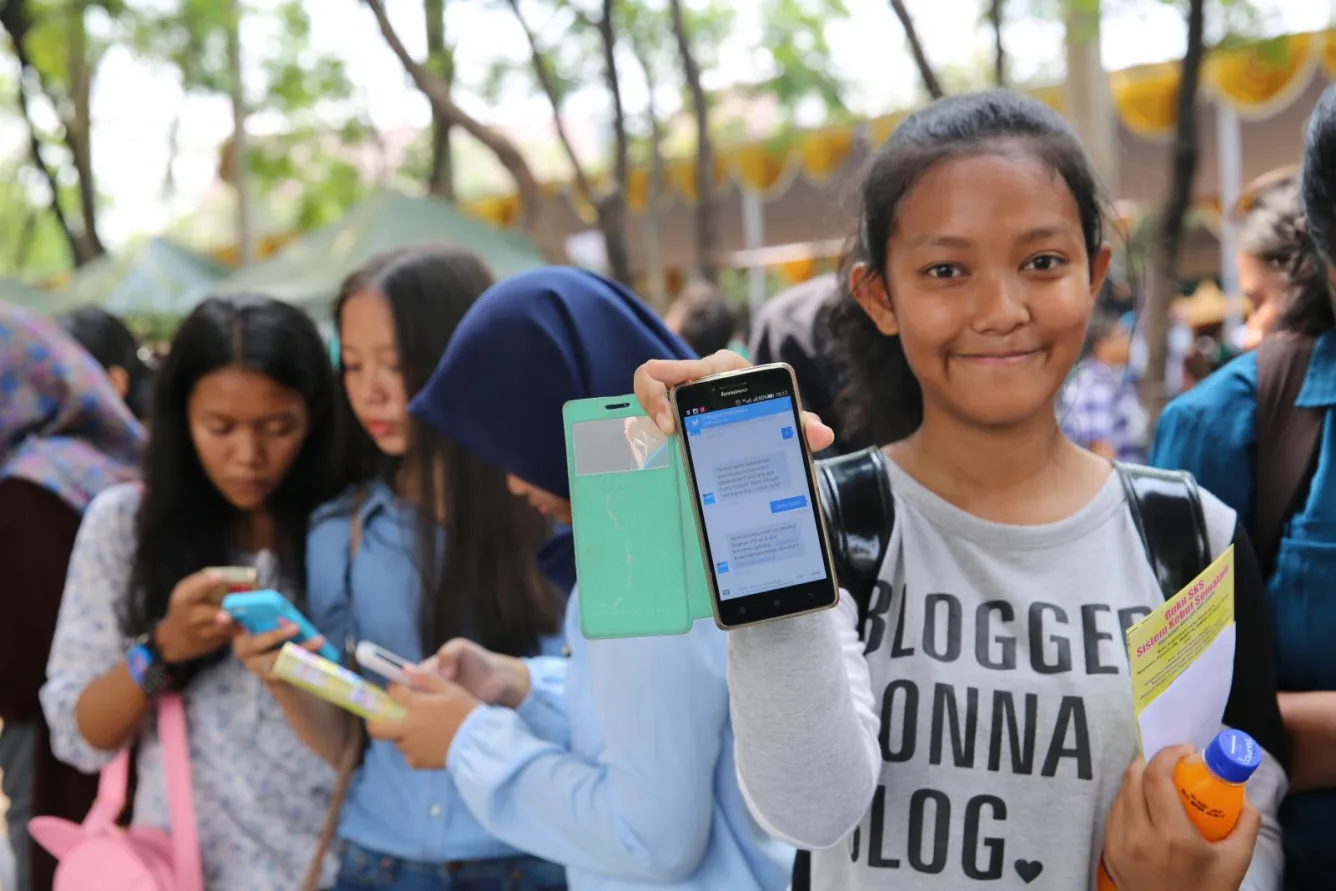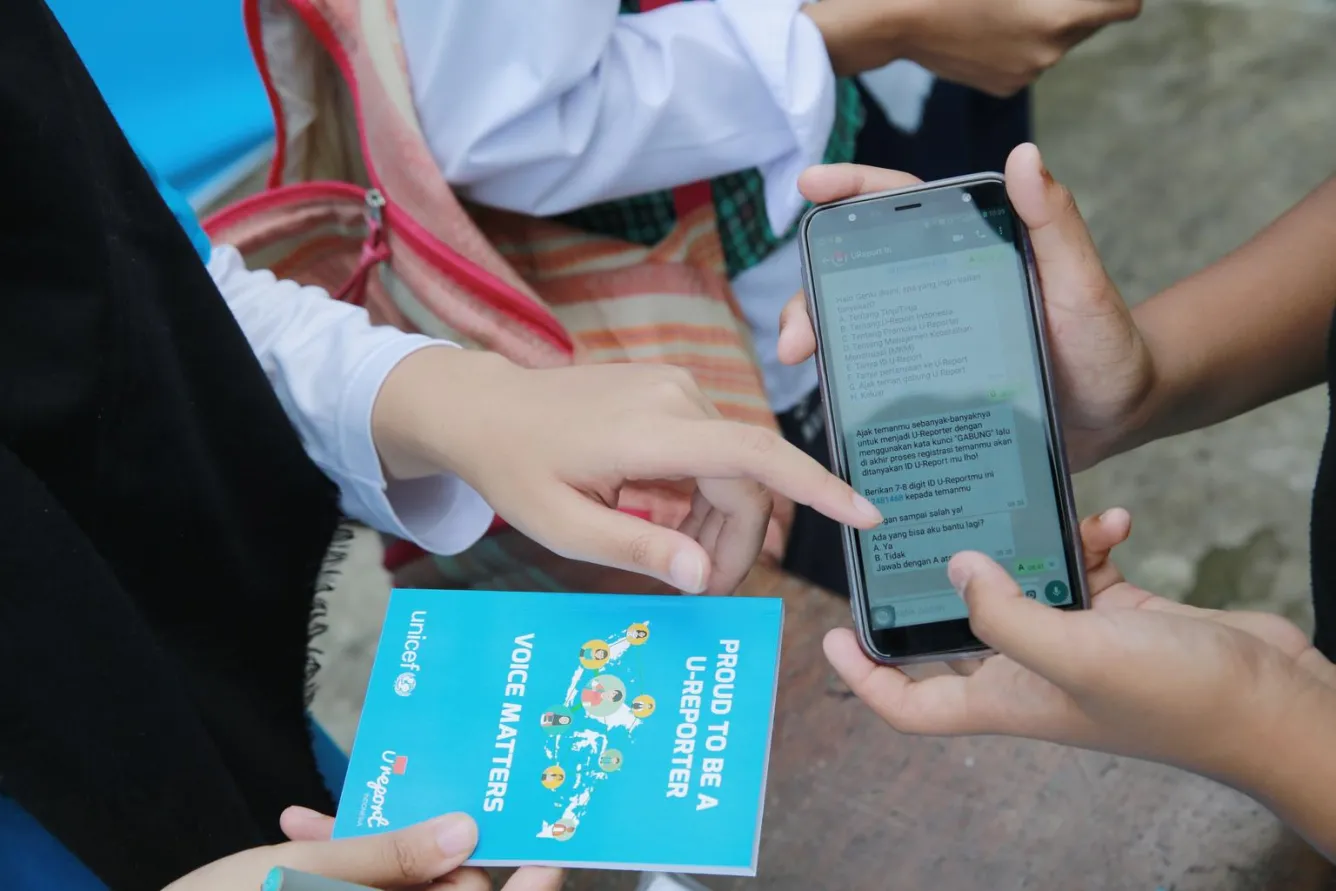U-Report: Spreading Facts, Not Fear
10 million U-Reporters and climbing
Millions of young people are now getting life-saving information on COVID-19 through U-Report, UNICEF’s digital youth empowerment platform that gives young people in 68 countries a voice on issues that matter to them through the use of WhatsApp, Facebook Messenger and Viber. Launched in Uganda in 2011, U-Report gathers opinions and information from young people on topics from education and jobs to child marriage.
Users, known as ‘U-Reporters’, respond to polls, report issues and support campaigns. Their insights are then shared with the communities and policy-makers who’s decisions affect young people’s lives. It’s free, anonymous and easy to use, with one of the most popular features being the chatbots which answer questions about everything from Ebola to sexual health.
In February 2020, the Office of Innovation, PD-C4D and EMOPS teamed up to create a COVID-19 chatbot that combats rumors, gathers public health data, and spreads lifesaving information.
The COVID-19 bot strengthens UNICEF’s ability to assess needs, tackle misinformation and, in partnership with governments, share reliable information on where communities can seek assistance. It will soon be scaled up to reach more countries and people, as well as analyzing data to track rumors and asses public health needs in different locations.
As soon as the first cases of coronavirus appeared in Africa, UNICEF Côte d’Ivoire - which is home to the largest global group of U-Reporters - developed and implemented a communication strategy to raise awareness, reassure people and provide the right information to Ivorians. This emergency communications strategy uses various tools, partnerships and platforms put in place in the past few years that are now used for emergency communications such as strong partnerships with the government and phone services provider, an extensive U-Report community, dynamic digital media and an engaged community of young people ready to take action for positive change in their community.

Spreading facts, not fear
In the western Indonesian city of Bandar Lampung, Melva Christien Manurung, age 23, is worried that young people aren’t prepared for the rapid spread of COVID-19. “Misleading information is sowing fear and confusion in our communities,” she says.
Indonesia, the world’s fourth most populous nation, confirmed its first Covid-19 case on March 2nd and with infections spreading globally, people need to know how to protect themselves.
To test young people’s knowledge, the government teamed up with UNICEF to run a poll through U-Report, which focused on the symptoms, transmission and prevention of COVID-19, and which gained over 3,800 responses in three days.
63% of male and 70% of the female responders understand the symptoms, but less than a quarter knew the virus can be transmitted through drops spread by coughing and sneezing.
The World Health Organization lists handwashing with soap as its top public safety recommendation, yet just 8% of respondents chose this option, while 34% picked handwashing with no mention of soap. “We need to understand community concerns and what information is needed,” notes Widiarsi Agustina, Senior Advisor in the Executive Office of the President.
“U-Report gives us insights into how we communicate our response.”
The poll, which is just one of the listening exercises led by Indonesia’s national COVID-19 communication centre, resulted in all 108,000 U-Reporters in the country receiving the latest information they need to stay safe.
“The messages I received, both visuals and text, were insightful,” says Shafa Mirah Sinegar, U-Reporter from Riau. “U-Report taught me a lot more about Covid-19 and how to avoid catching it.”
Around 30% of poll respondents said social media is their main source of information on COVID-19, so UNICEF and partners are working to find, expose and respond to misinformation online.
“What U-Report does, is help educate people and reduce all this misinformation,” says Melva Manurung. “This way, everyone can stay healthy and safe.”

Social Distancing but at a Cost
In Canada, there are close to 8 million Canadians who are under the age of 18, all of who have been impacted by ongoing school closures, business shut-downs and social isolation requests.
In March 2020, UNICEF Canada conducted a U-Report poll with Canadian U-Reporters, to check-in and find out how they are doing under COVID-19.
In the results from the poll, UNICEF Canada learned that the majority of respondents had heard of COVID-19 (92%) and were actively practicing social distancing (77%). Perhaps more importantly though, almost one-third of respondents indicated they are experiencing increased stress/anxiety. This tops the list of their most frequently named experiences, above school closures.
UNICEF Canada also learned that young people are mostly getting their information on COVID-19 from news and social media (33%) followed by family and friends (29%).
Generally, respondents indicated they feel like they are getting the information and support they need from their family /friends (90%), the government (76%), and the media (60%), but feel less informed and supported by their schools and workplaces, which is not surprising as many of these are under control measures.
Read UNICEF's tips for teenagers on looking after your mental health here >>
